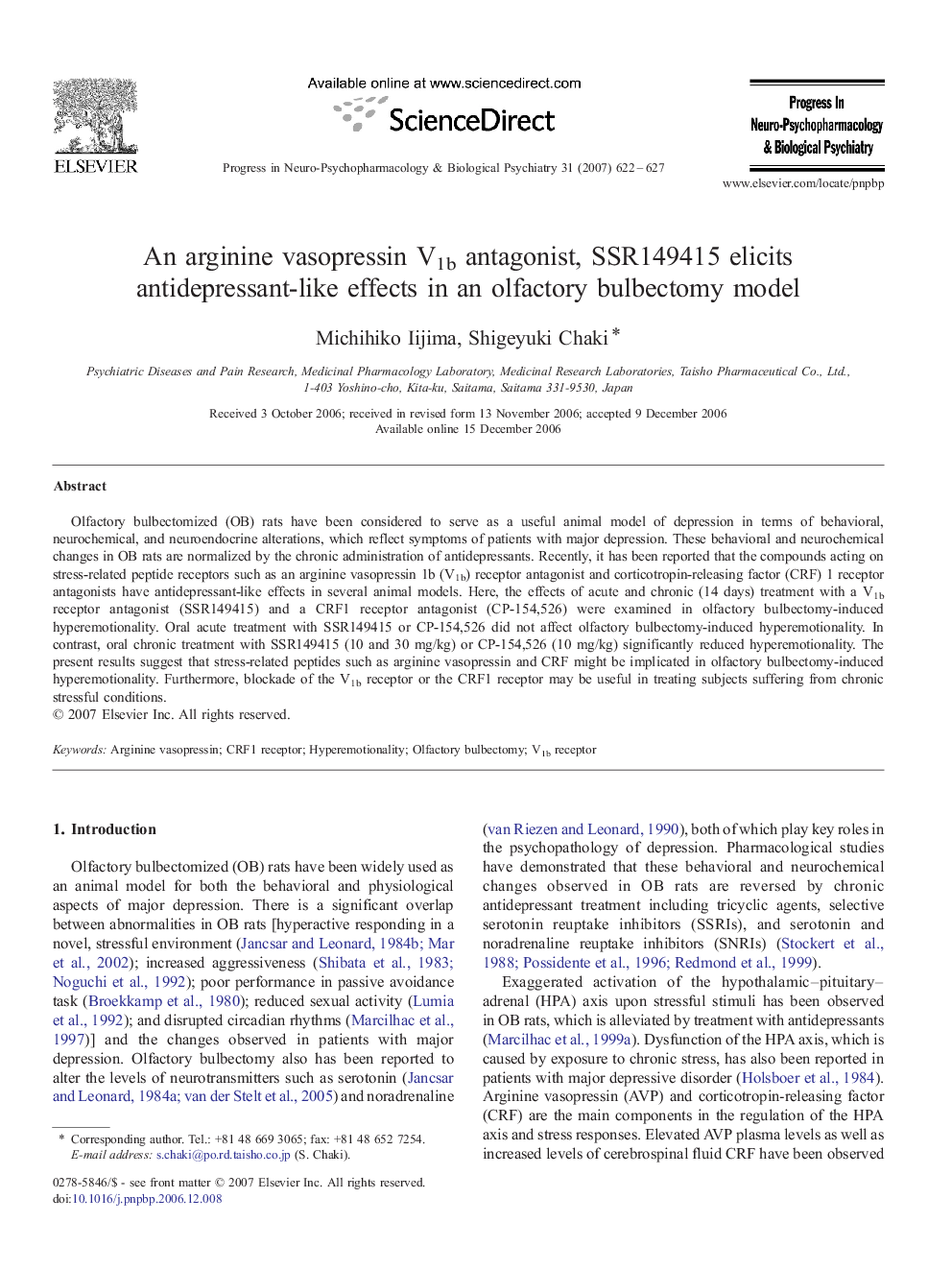| Article ID | Journal | Published Year | Pages | File Type |
|---|---|---|---|---|
| 2566317 | Progress in Neuro-Psychopharmacology and Biological Psychiatry | 2007 | 6 Pages |
Olfactory bulbectomized (OB) rats have been considered to serve as a useful animal model of depression in terms of behavioral, neurochemical, and neuroendocrine alterations, which reflect symptoms of patients with major depression. These behavioral and neurochemical changes in OB rats are normalized by the chronic administration of antidepressants. Recently, it has been reported that the compounds acting on stress-related peptide receptors such as an arginine vasopressin 1b (V1b) receptor antagonist and corticotropin-releasing factor (CRF) 1 receptor antagonists have antidepressant-like effects in several animal models. Here, the effects of acute and chronic (14 days) treatment with a V1b receptor antagonist (SSR149415) and a CRF1 receptor antagonist (CP-154,526) were examined in olfactory bulbectomy-induced hyperemotionality. Oral acute treatment with SSR149415 or CP-154,526 did not affect olfactory bulbectomy-induced hyperemotionality. In contrast, oral chronic treatment with SSR149415 (10 and 30 mg/kg) or CP-154,526 (10 mg/kg) significantly reduced hyperemotionality. The present results suggest that stress-related peptides such as arginine vasopressin and CRF might be implicated in olfactory bulbectomy-induced hyperemotionality. Furthermore, blockade of the V1b receptor or the CRF1 receptor may be useful in treating subjects suffering from chronic stressful conditions.
